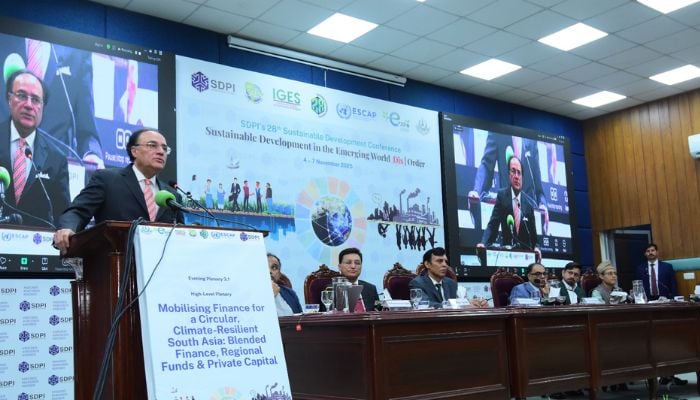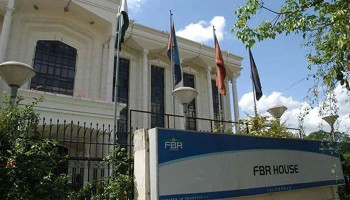
An image of Federal Minister for Finance and Revenue Muhammad Aurangzeb addressing Sustainable Development Policy Institute’s high-level plenary on Mobilising Finance for a Circular, Climate-Resilient South Asia.' — X/@Financegovpk
Pakistan is stepping up efforts to lead regional climate financing as the country’s banking and government officials proposed new mechanisms to tackle the climate crisis and boost South Asia’s resilience.
During a conference on Friday hosted by the Sustainable Development Policy Institute (SDPI), Pakistan Banking Association (PBA) Chairman Zafar Masud suggested the establishment of South Asia's first Regional Climate Bank.
He stated that the Regional Climate Bank can support funding green projects across the South Asia region and emphasised that climate change is a collective threat to the region that requires collective financial solutions.
Masud highlighted the need to prioritise climate financing through a proposed 27th constitutional amendment. He reiterated that developing countries, including Pakistan, are still struggling to provide bankable, feasible projects to attract climate financing, despite a growing interest in climate financing internationally.
Federal Minister for Finance and Revenue Muhammad Aurangzeb echoed Masud's comments and stated that climate change and population growth are Pakistan's two biggest challenges toward survival.
Aurangzeb added that Pakistan needs pragmatic solutions, market-driven solutions, rather than new layers of bureaucracy. Aurangzeb applauded private-sector solutions, including Acumen's $90 million Climate Action Fund and the Sindh mangrove carbon credit project, and stated that innovative projects such as these are required throughout Pakistan.
Additionally, he said that Pakistan has already gained considerable international support, including an annual World Bank partnership for $2 billion, a climate-support package from the IMF for $1.3 billion, and an ADB package of $500 million.
















